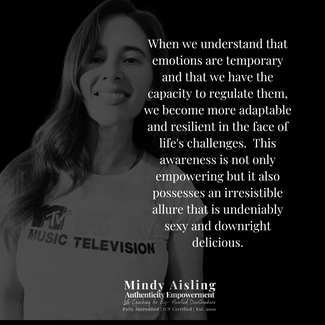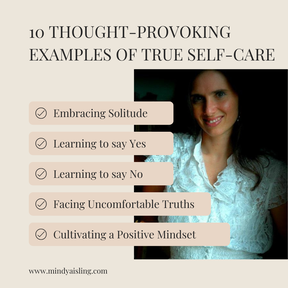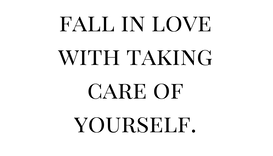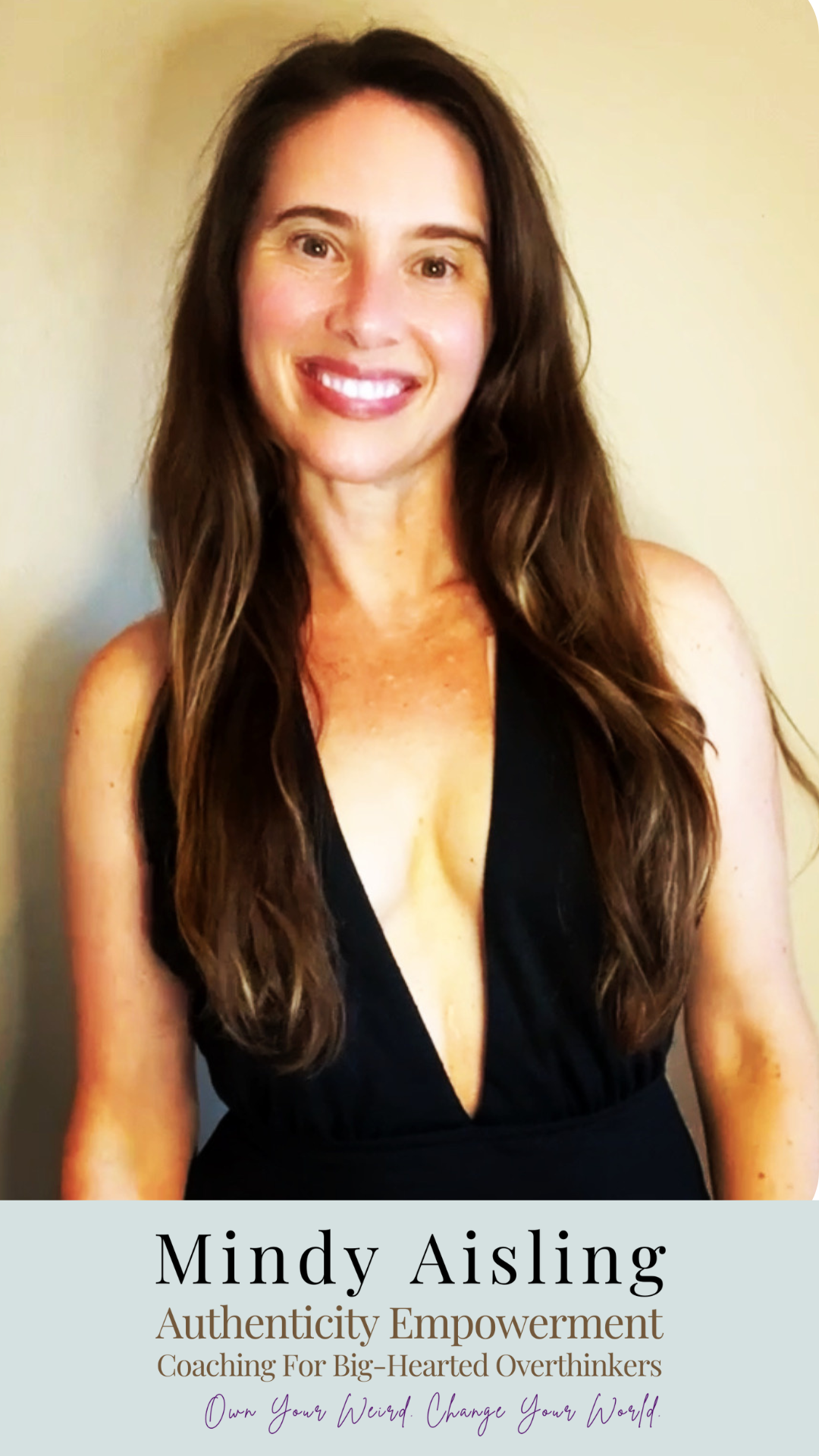|
In a world that glorifies productivity and busyness, the concept of doing nothing may seem counterintuitive. Yet, in the Dutch culture, there exists a word that encapsulates the art of purposefully doing nothing: Niksen. Derived from the Dutch verb "niks," meaning "nothing," Niksen refers to the practice of simply being, without any specific purpose or goal. While it may sound like idleness, Niksen is far from laziness; rather, it is a deliberate and mindful act of relaxation that holds profound benefits for our mental well-being. From a neurobiological standpoint, engaging in Niksen can have a significant impact on our nervous system. In our fast-paced society, the constant barrage of stimuli can overwhelm our senses and trigger the body's stress response. This chronic state of stress can lead to a variety of physical and mental health issues, including anxiety, depression, and burnout. However, when we practice Niksen, we allow our nervous system to enter a state of relaxation known as the parasympathetic mode. This is the body's natural counterpart to the stress response, promoting rest, digestion, and restoration. As we embrace moments of purposeful inactivity, our heart rate slows, our muscles relax, and our breathing becomes deeper and more rhythmic. This physiological shift not only promotes relaxation in the moment but also has long-term benefits for our overall health and well-being. Moreover, Niksen can also enhance our mental clarity and confidence. In a world filled with constant noise and distraction, taking time to do nothing allows us to quiet the mind and cultivate inner stillness. This state of mental calmness enables us to gain perspective, process our thoughts and emotions, and tap into our intuition. In the words of A.A. Milne's beloved characters Winnie the Pooh and Christopher Robin, Niksen is akin to "going along listening to all the things you can't hear and not bothering." In a conversation between Pooh and Christopher Robin, Pooh asks, "Christopher Robin, what is doing nothing?" To which Christopher replies, "It means going along listening to all the things you can't hear and not bothering." This exchange beautifully captures the essence of Niksen: the art of being fully present in the moment, attuned to the subtle nuances of our surroundings, without the need to constantly engage or react. However, it's essential to note that true Niksen cannot be achieved while mindlessly scrolling through our phones or passively watching television. While these activities may provide temporary distraction, they do not allow our minds to truly rest and recharge. Instead, they often perpetuate the cycle of overstimulation and reinforce unhealthy habits of avoidance and escapism.
Check out the Pogo song, Boy and Bear (one of my favorites!)
Book a free session with me and discover how we can work together.
0 Comments
When we go after our goals, it's inevitable that we will encounter challenges along the way. These hurdles can range from minor setbacks to seemingly insurmountable obstacles, testing our resolve and determination. Yet, how we perceive and approach these challenges can make all the difference between success and stagnation. Many of us embark on a journey towards a goal with enthusiasm and determination, only to falter when faced with the first signs of difficulty. We may find ourselves questioning our abilities, fearing failure, or succumbing to the allure of comfort and familiarity. In these moments, it's tempting to throw in the towel and abandon our aspirations altogether. However, what if we were to view challenges not as roadblocks, but as integral parts of the journey towards our goals? What if, instead of being discouraged by setbacks, we saw them as opportunities for growth and learning? This shift in mindset can be transformative, empowering us to navigate obstacles with resilience and determination. When we set a goal, whether it's pursuing a new career, starting a business, or achieving a personal milestone, we must acknowledge that challenges will inevitably arise. Rather than viewing these challenges as deterrents, we can choose to anticipate and embrace them as part of the process. By identifying potential obstacles upfront, we can better prepare ourselves mentally and emotionally for the journey ahead. For example, imagine someone who dreams of running a marathon. Instead of naively assuming that the path will be smooth sailing, they recognize that training for a marathon will require dedication, discipline, and perseverance. They anticipate challenges such as physical fatigue, mental exhaustion, and unexpected setbacks. Armed with this awareness, they approach their training regimen with a sense of purpose and determination, knowing that each obstacle they overcome brings them one step closer to their goal. Similarly, in the realm of entrepreneurship, aspiring business owners often face numerous challenges on the road to success. From securing funding and attracting customers to navigating market fluctuations and competition, the entrepreneurial journey is fraught with obstacles. Yet, those who thrive in this environment are not deterred by adversity; rather, they embrace it as an integral part of the entrepreneurial process.
abandon our goals. Instead, we recognize them as opportunities for growth, learning, and self-discovery. Each challenge we encounter becomes a stepping stone towards personal and professional development, strengthening our resolve and sharpening our skills along the way.
When we choose to pursue a goal, we also choose the challenges that come with it. By embracing these challenges as integral parts of the journey, rather than obstacles to be avoided, we set ourselves up for success. Whether it's running a marathon, starting a business, or pursuing any other aspiration, the path to achievement is paved with challenges. It's up to us to face them with courage, resilience, and unwavering determination. So, what challenges are you choosing? 60 Second Tips From A Certified Life Coach: How To Change Your Inner Voice, In-The-Moment-Updates5/7/2024 Engaging in in-the-moment updates, where you consciously reprogram negative self-talk into positive and empowering thoughts, can lead to significant changes in the neural pathways of your brain. This process is rooted in the concept of neuroplasticity, the brain's ability to reorganize and form new connections in response to experience and learning. When you intentionally interrupt negative thought patterns and replace them with more positive ones, you activate specific neural circuits associated with language, emotion regulation, and self-perception. With repetition, these new neural pathways become stronger and more ingrained, making it easier to default to positive self-talk in similar situations in the future. Over time, this rewiring of the brain leads to a fundamental shift in your inner dialogue, fostering greater self-esteem, resilience, and overall well-being. By actively shaping your thoughts in the present moment, you're literally rewiring your brain to support a more positive and empowering mindset, ultimately transforming how you perceive yourself and the world around you. Here are three examples of how you can apply this technique in different areas of your life:
In each scenario, the negative self-talk reflects a mindset of self-doubt, blame, or unworthiness. By practicing in-the-moment updates, you can interrupt these patterns and replace them with thoughts that are more compassionate, empowering, and aligned with your true worth and potential. This technique allows you to take control of your inner dialogue and cultivate a mindset that supports your well-being and personal growth. 60 Second Tips From A Certified Life Coach: How To Change Your Inner Voice, Becoming The Watcher5/7/2024 The first step to changing your inner voice and cultivating kind, uplifting self-talk is awareness. In spiritual terms, this is often referred to as "being the watcher" – the observer of your thoughts and emotions. It involves slowing down, taking a step back, and simply noticing what arises in your mind without judgment or attachment. Being aware of your thoughts in everyday moments offers valuable insight into your inner voice and provides opportunities for self-reflection and growth. Notice what crosses your mind as you walk past a mirror – do you criticize your appearance or do you offer words of self-acceptance and appreciation? Pay attention to your inner dialogue as you prepare to go to work – are you filled with dread and negativity, or do you approach your day with optimism and enthusiasm? And during lunchtime, observe the thoughts that accompany your meal – are they filled with guilt or shame, or do you nourish yourself with thoughts of gratitude and enjoyment? All of these moments matter, as they offer clues about the quality of your inner voice and reveal areas where you may want to make changes or updates. By bringing awareness to these everyday thoughts, you empower yourself to consciously shape your inner dialogue and cultivate a mindset that supports your well-being and happiness. Becoming aware of your thoughts is key because it helps you recognize that you are not your thoughts. You are the consciousness that observes them, the silent witness behind the mental chatter. This realization is incredibly empowering because it means you have the ability to choose how you respond to your thoughts and whether you believe them to be true. Practicing awareness of your thoughts involves mindfulness – the practice of being present and fully engaged in the present moment. You can start by setting aside a few moments each day to sit quietly and observe your thoughts as they arise. Notice the patterns, the recurring themes, and the emotions associated with them. As you become more adept at being the watcher of your thoughts, you'll begin to notice a gap between your thoughts and your true essence. This gap is where you have the power to intervene, to challenge negative or unhelpful thoughts, and to replace them with kinder, more uplifting ones. Remember, changing your inner voice is a process that takes time and practice. Be patient with yourself as you cultivate awareness and begin to shift your self-talk. And know that by choosing to be the watcher of your thoughts, you're taking a powerful step towards greater self-awareness, self-compassion, and personal growth. We all have those "crunchy" areas in our lives – thoughts, ideas, and beliefs that just don't feel good. These sticky spots hold us back, limiting our potential and hindering our growth. They stem from past experiences, traumas, or conditioning, and they often manifest as self-doubt, fear, or negative self-talk. When we find ourselves particularly stuck in these crunchy areas, it's essential to seek help. Whether through coaching, therapy, self-investigation, or psychedelic healing journeys, the goal is the same – to uncover and address the root causes of our discomfort and heal the wounds that hold us back. This process requires courage and vulnerability, as we must be willing to confront the pain and discomfort head-on. It involves going back to the source of our pain and reframing it, healing it, so that it no longer has power over us. This might involve revisiting past traumas, challenging long-held beliefs, or learning new coping strategies to navigate difficult emotions. Therapy and coaching provide a safe and supportive environment for this healing work, offering guidance, tools, and insights to help us navigate our inner landscape. Self-investigation, through practices like journaling, meditation, or self-reflection, allows us to explore our inner world at our own pace, uncovering hidden truths and insights along the way. Psychedelic healing journeys can also be powerful tools for deep inner healing, providing access to altered states of consciousness where profound insights and healing can occur. Under the guidance of experienced facilitators, these journeys offer an opportunity to explore the depths of our psyche and release stuck energy, trauma, and limiting beliefs. Ultimately, the goal is to liberate ourselves from the grip of our crunchy areas, freeing up energy and space for growth, creativity, and fulfillment. By doing the inner work to heal and reframe our past wounds, we empower ourselves to live more fully in the present moment, unencumbered by the limitations of the past. 60 Second Tips From A Certified Life Coach: How To Change Your Inner Voice, Examining Your Filter5/7/2024 Each person has a unique filter in their brain that interprets and organizes the vast amount of data received from the world around us. This filter, often shaped by our past experiences, beliefs, and perceptions, creates a narrative that influences our thoughts, feelings, and behaviors. This narrative forms the basis of our inner voice, shaping how we perceive ourselves, others, and the world. If we desire to change our inner voice, it's essential to investigate what is on our filter – the beliefs, assumptions, and interpretations that have been ingrained over time. This involves examining the origins of these beliefs and questioning whether they are truly aligned with our authentic selves. For example, if our filter includes beliefs such as "I'm not worthy of love" or "I'll never succeed," we can trace these beliefs back to specific experiences or messages we received in the past. By understanding the root causes of these beliefs, we can begin to challenge and replace them with new, more empowering beliefs that are in alignment with our true selves. Replacing old beliefs with new ones requires conscious effort and intentionality. It involves actively choosing to adopt beliefs that support our growth, well-being, and self-acceptance. Affirmations, positive self-talk, and cognitive-behavioral techniques can be powerful tools in this process, helping to rewire the neural pathways in our brain and create a more positive and empowering inner dialogue. As we replace old beliefs with new ones, we gradually shift the narrative on our filter, creating a more authentic and empowering story that reflects our true worth, potential, and essence. This process of self-inquiry and transformation allows us to break free from limiting beliefs and embrace a new narrative that aligns with our highest vision for ourselves. By consciously shaping our inner voice, we empower ourselves to live more fully, authentically, and joyfully. I have an entire DIY course on this topic if you want to investigate your filter! CLICK HERE The use of affirmations to change the neuropathways in the brain is rooted in neuroscience and psychology. Affirmations are positive statements that are repeated regularly to reprogram the subconscious mind and shift negative thought patterns. When used consistently, affirmations can lead to changes in neural pathways, resulting in a more positive inner voice and self-talk. Neuroplasticity, the brain's ability to reorganize and form new neural connections throughout life, is a key principle underlying the effectiveness of affirmations. Research has shown that repetitive positive affirmations can strengthen neural pathways associated with positive self-perception and self-esteem while weakening pathways associated with negative self-talk and self-doubt. When you repeat affirmations, you activate specific regions of the brain involved in language processing, emotion regulation, and self-referential thought. With each repetition, these neural circuits are strengthened, making it easier for positive beliefs and attitudes to take root and become ingrained in your subconscious mind. Furthermore, affirmations have been found to stimulate the release of neurotransmitters such as dopamine and serotonin, which are associated with feelings of happiness, motivation, and well-being. By flooding the brain with these feel-good chemicals, affirmations create a positive feedback loop that reinforces the desired mindset and behavior. Over time, as you continue to practice affirmations, you may notice a gradual shift in your inner dialogue and self-perception. Negative self-talk is replaced with more empowering and uplifting thoughts, leading to increased self-confidence, resilience, and a greater sense of self-worth. In essence, affirmations harness the brain's remarkable capacity for change and adaptation to promote positive mental health and well-being. By intentionally reshaping your inner dialogue, you can transform your mindset and create a more positive and empowering narrative that aligns with your goals and aspirations.  Embark on a journey of self-discovery with the "How Sexy is Your EQ (Emotional Quotient) Making You?" test, designed to illuminate the facets of your EQ, also known as emotional quotient or emotional intelligence. Your EQ is a key determinant of how effectively you navigate the intricate terrain of emotions in both personal and interpersonal realms. This quiz, comprising ten thought-provoking questions, delves into your responses to various scenarios, shedding light on your emotional awareness, regulation, and interpersonal skills. Understanding your emotional intelligence is paramount as it directly influences the quality of your relationships, your ability to manage stress, and your overall well-being. By taking this test, you open a door to self-reflection and growth, gaining insights into areas where you excel and identifying opportunities for improvement. Enhancing your EQ can lead to increased resilience, stronger connections with others, and a sexier, more confident you. EQ Quiz How do you typically respond to criticism or feedback? a) Get defensive and feel attacked. b) Reflect on the feedback and consider how to improve. c) Brush it off and don't take it seriously. In times of stress, how do you cope with your emotions? a) Bottle them up and avoid dealing with them. b) Seek support from friends or engage in activities that help you relax. c) Let your emotions take control and react impulsively. How well do you recognize and understand other people's emotions? a) Struggle to pick up on subtle cues. b) Have a decent understanding, but sometimes miss the mark. c) Are generally perceptive and empathetic. When faced with a conflict, how do you usually approach resolution? a) Avoid confrontation at all costs. b) Communicate openly and seek compromise. c) Assert yourself aggressively to get your way. How do you handle setbacks or failures? a) Blame others or external factors. b) Analyze what went wrong and strategize for improvement. c) Take it personally and feel defeated. In a social setting, how do you engage with others emotionally? a) Keep conversations surface-level, avoiding deeper emotions. b) Share your feelings and encourage others to do the same. c) Dominate conversations with your own emotions. How do you express your emotions in a romantic relationship? a) Struggle to communicate your needs and feelings. b) Express your emotions openly and encourage your partner to do the same. c) Keep emotions hidden to maintain a sense of control. How well do you handle uncertainty and change? a) Feel anxious and resistant to change. b) Adapt and find opportunities in new situations. c) Embrace change without considering the emotional impact. How often do you practice self-care for your emotional well-being? a) Rarely prioritize self-care. b) Make an effort to practice self-care regularly. c) Believe self-care is unnecessary. When someone else is expressing strong emotions, how do you react? a) Feel uncomfortable and try to change the subject. b) Listen attentively and offer support. c) Dismiss their emotions as overreactions. Answer Key:
Scoring:
Congratulations on completing the "How Sexy is Your EQ (Emotional Quotient) Making You?" quiz! If you're eager to enhance your emotional intelligence further, there are numerous valuable resources available to guide you on this transformative journey.
Dive into books like "Emotional Intelligence" by Daniel Goleman or "The Power of Now" by Eckhart Tolle to gain profound insights into self-awareness and emotional regulation. Explore websites such as Psychology Today for articles and tips on emotional well-being. Podcasts like "The Science of Happiness" and "The School of Greatness" can offer engaging discussions on emotional intelligence and personal growth. Additionally, if you're seeking personalized guidance, consider exploring life-coaching services. I'm thrilled to offer my expertise in life coaching, providing tailored support to help you harness and elevate your emotional intelligence. Remember, investing in your emotional well-being is a powerful step toward a more fulfilling and balanced life.  Amidst the chaos of life, there is a powerful secret to unlocking true happiness and achievement: falling in love with the process of taking care of ourselves. It involves not merely treating self-care as a routine, but as an art—one that requires us to slow down, tune into our emotions, and respond to our needs with precision and honesty. At the core of thisjourney is our ability to cultivate self-awareness. It's about slowing down the pace of life enough to be fully present in each moment, to decipher the nuances of our emotions, and to discern what our hearts and minds truly need. By honing this skill, we pave the way for a profound connection with ourselves, laying the foundation for a more successful and joyful life. Embracing the process of self-care demands accurate self-assessment and unyielding self-honesty. It means acknowledging both our strengths and vulnerabilities, understanding our limitations, and celebrating our unique qualities. This also includes being aware of our unhealed wounds and our limiting belief systems. This introspective journey allows us to craft a personalized self-care routine that aligns with our authentic selves, fostering a sense of purpose and direction in our lives. True self-love means empowering ourselves in every moment, especially when we feel adrift or disconnected. In times of uncertainty, it's essential to give ourselves whatever we need to regain a sense of care, strength, and clarity of purpose. Whether it's a moment of solitude, a burst of creativity, or a simple act of self-compassion, the power lies in our ability to nurture ourselves back to a state of well-being. Falling in love with the process of self-care is not a one-size-fits-all endeavor; it's a personalized journey of discovery and refinement. It involves experimenting with various self-care practices, understanding what resonates with us, and continuously evolving our routines as we grow. It's about recognizing that self-care is not a luxury but a necessity on the path to success and joy. In our journey of falling in love with the process of taking care of ourselves, we embark on a transformative act—one that leads to greater peace, joy and fulfillment.
Self-care is often portrayed through the lens of soothing activities like bubble baths, scented candles, or spa days. While these can be delightful ways to unwind, true self-care goes beyond the surface and involves intentional practices that nurture your mental health, even when they might seem challenging. Here are ten examples of self-care that require courage, honesty, and resilience.  Facing Fear through Expression: Self-care means speaking your mind, even when fear tries to silence you. Confronting your anxieties by expressing your thoughts and feelings can be a powerful act of self-love. Setting Boundaries: Learning to say no and establishing healthy boundaries is a form of self-care that protects your mental well-being. It involves prioritizing your needs and respecting your limits, even if it means disappointing others. Seeking Professional Help: Acknowledging the need for therapy or counseling is an important aspect of self-care. Taking that step to seek professional help demonstrates a commitment to your mental health and personal growth. Forgiving Yourself: Self-compassion is a challenging yet crucial form of self-care. Forgiving yourself for past mistakes and embracing imperfections allows you to move forward with a lighter heart and a clearer mind. Confronting Toxic Relationships: Letting go of toxic relationships, whether they be friendships or family ties, is a bold act of self-preservation. It may be difficult, but it creates space for healthier connections to flourish.  Embracing Solitude: Spending time alone, without distractions, can be a powerful form of self-reflection and self-discovery. Embracing solitude allows you to connect with your inner self and recharge your mental batteries. Learning to Say Yes: On the flip side, self-care involves stepping out of your comfort zone and saying yes to opportunities that align with your values and desires. It's about embracing growth and new experiences. Learning to Say No: Mastering the art of saying no is a fundamental form of self-care. Recognizing your limits and having the courage to decline commitments that overwhelm you is crucial for maintaining mental well-being. It involves prioritizing your needs and ensuring that your energy is directed toward what truly matters to you. Facing Uncomfortable Truths: Self-awareness is a cornerstone of self-care. Confronting uncomfortable truths about yourself, your actions, or your past can be challenging but is essential for personal growth and healing. Cultivating a Positive Mindset: Shifting towards a positive mindset requires conscious effort. Practicing gratitude, reframing negative thoughts, and focusing on the present moment contribute to a more optimistic and resilient mental state. While bubble baths and pampering sessions have their place, real self-care involves confronting the difficult aspects of life head-on. By incorporating these challenging practices into your routine, you foster a deeper, more resilient connection with yourself and enhance your overall mental health. First time FREE no-obligation session, click here!
|
AuthorMindy Amita AislingAuthenticity EmpowermentLife Coaching for Big-Hearted Overthinkers & Entreprenerds🐲Own Your Weird
🌎 Change Your World ⬇️ DIY Courses 👩🏻💻1:1 RemoteCoaching Fully Accredited ICF Certified Mindy Amita Aisling, is a professionally trained and board-certified leadership, authenticity, and entrepreneur coach.
Mindy exceeds all requirements set forth by the International Coaching Federation (ICF) for Master Coach certification. Mindy is also a licensed mediator, communications coach, and conflict resolution practicer. As a mediator, she has worked both in private practice and as a court appointment mediator at her local county courthouse. Through her innovative approach, she assists clients in examining their limiting beliefs, questioning their assumptions about how the world works, and releasing the notion that they are anything less than perfect. As a result, individuals who work with Mindy cultivate the ability to stand firm in their beliefs, live authentically and decisively, and discover an experience of life that is easy and graceful. In 2021, Mindy founded How to Be Human and Entreprenerd. These programs have enabled her to share her wisdom and knowledge with a broader audience in service of her vision of helping others live authentic lives This, in turn, has empowered more individuals to lead their most TRUE and COURAGEOUS lives. When she is not working, Mindy can be found playing outdoors in the beautiful Pacific Northwest, creating art, spending time with friends & family, or with her nose deep in a book. You can sign up for her newsletter here. Archives
June 2024
Categories
All
ICF Certified Life CoachAffordable Online Life Coaching |



 RSS Feed
RSS Feed
